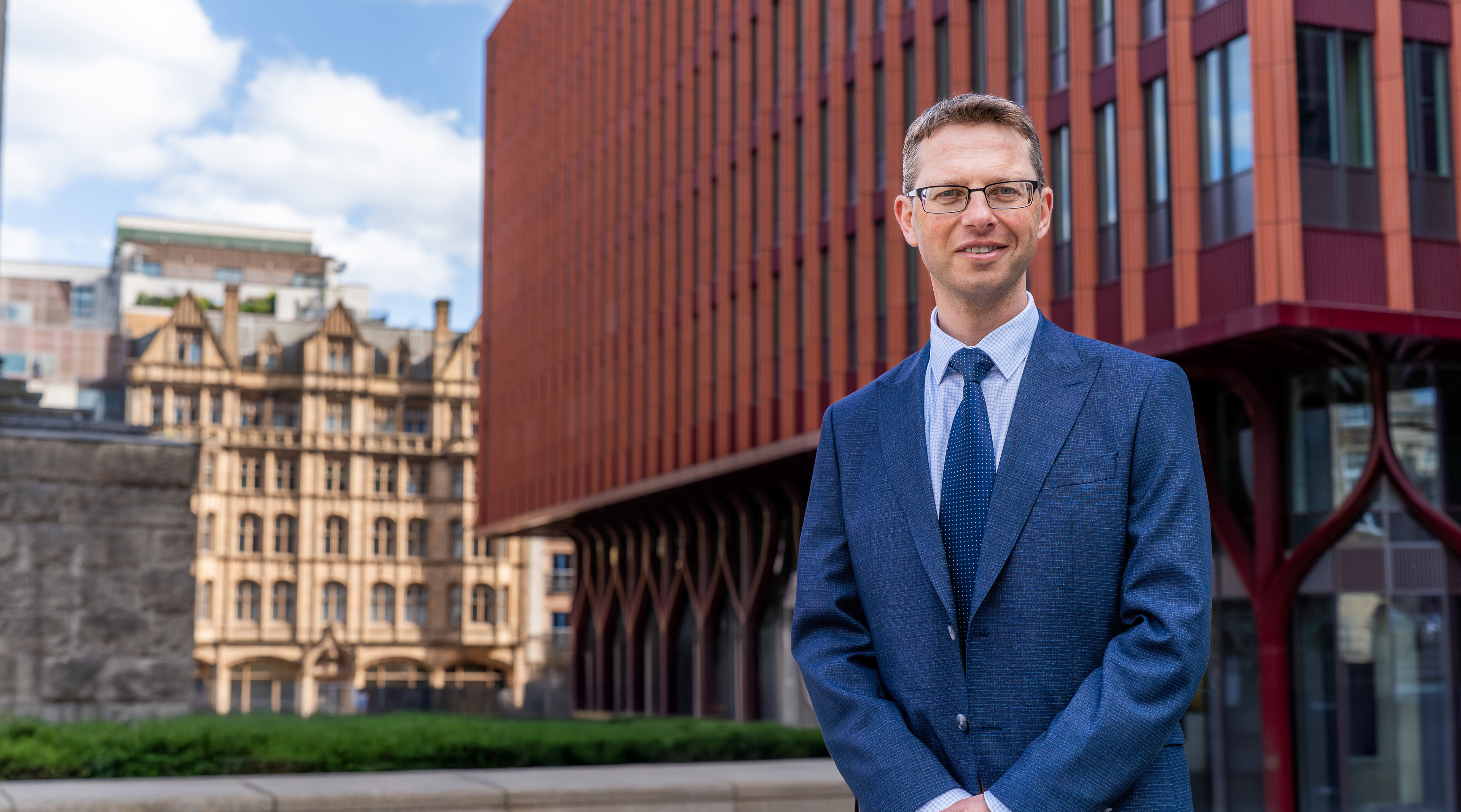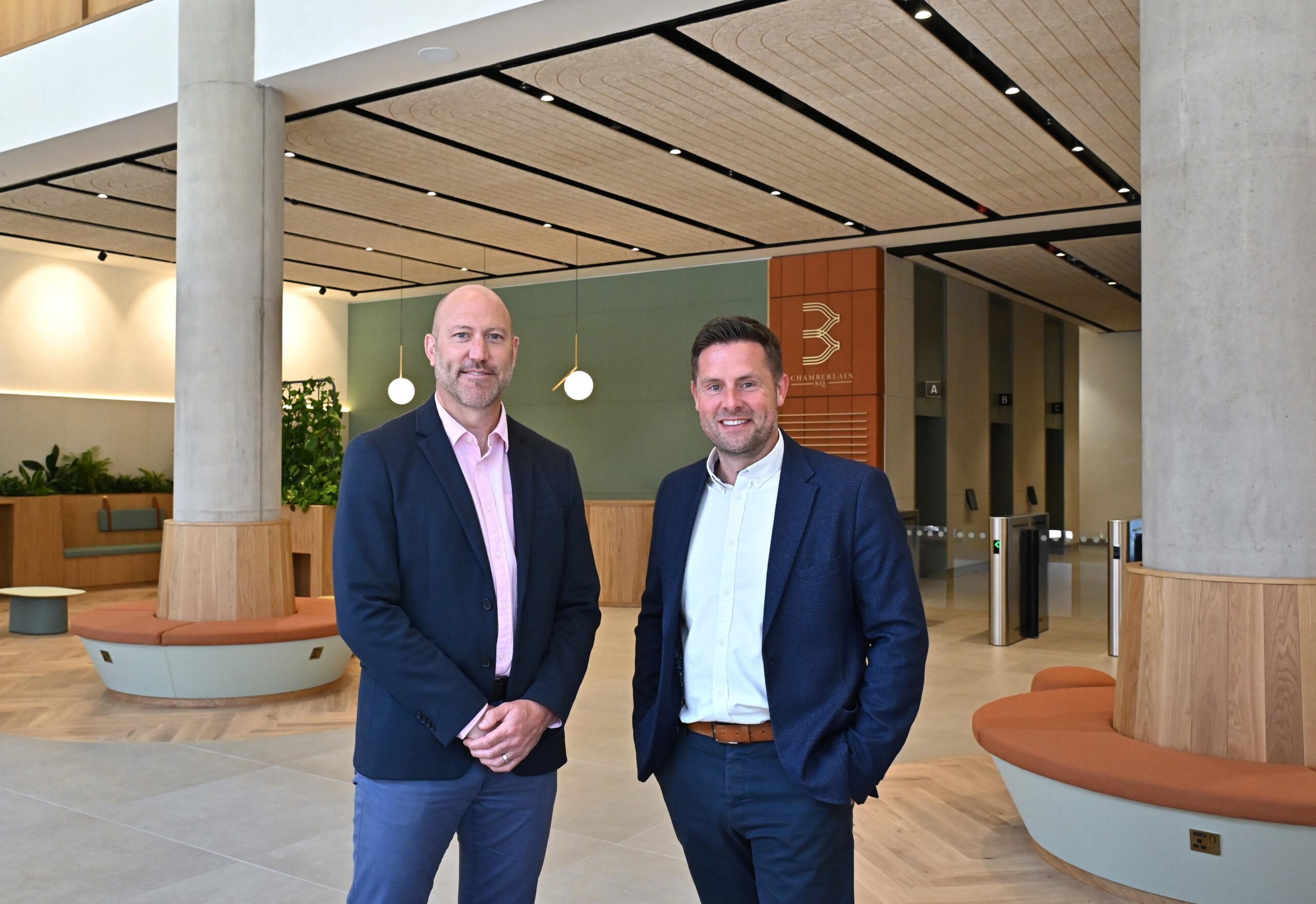Bishop helps Business District look into the Future
05 March 2021
Alex Bishop, co-head of leading UK law firm Shoosmiths in Birmingham, has been appointed as chair of the Advisory Panel for Colmore Business District’s (Colmore BID) Future Business District Study. She will be joined on the Panel by, among others, leading consumer behaviour expert and advertising sage Rory Sutherland, social entrepreneur Rosie Ginday MBE of Miss Macaroon fame and think tank boss Andrew Carter from Centre for Cities.
Future Business District is Colmore BID’s unique study to inform its response to long term recovery from the Covid-19 pandemic and to offer policy directions on best practice for central business districts across the UK. Colmore BID has also announced that it is extending its Call for Evidence deadline by a week, with final submissions now requested by 8th March 2021.
The Advisory Panel will provide expert input and advice on The Future Business District, supporting Colmore BID’s project leadership and the research team led by City-REDI at the University of Birmingham. Other members include Anita Bhalla OBE, who chairs the organisation behind Symphony Hall and Town Hall, Joe Barratt who sits on the Government’s High Streets Task Force and Nigel Driffield, a leading expert on international business at Warwick Business School. [Full list of members and biographical sketches included in Notes.]
Alex Bishop, national head of Shoosmiths’ dispute resolution and litigation practice and co-head of its Birmingham office, said:
“I am thrilled to chair the Advisory Panel. COVID-19 has put rocket boosters under transformational changes that were already happening, from how and where we work to focussing on the wellbeing of employees; from climate considerations to improving work/life balance.
“Now is a great opportunity to look at how the experience of the last year will shape the decisions that businesses, professionals, retailers, residents, restaurateurs, cultural hosts, investors and transport planners will make over the next few years and how the business district needs to prepare the ground.
“I’m really looking forward to working with a fantastic group of people who bring a wide variety of experiences and expertise to the table and will help shape and interpret the work that City-REDI is undertaking for the Future Business District.”
The Study has been established to answer two key questions:
- What is the likely long-term impact of the COVID-19 pandemic on city centre business districts?
- How can we ensure they remain successful as places to attract businesses and people and contribute to vibrant city centres?
The Call for Evidence highlights five broad questions:
- How have developments over the last twelve months (especially in relation to the Covid-19 pandemic) changed city centre business districts for the long term? How have businesses, professionals and other users responded in ways which will last beyond the restrictions of the pandemic?
- What other developments will change city centre business districts and the way you, your organisation or sector accesses and utilises them over the next 5-10 years?
- How do you expect things to change and why:
- a) in the next 3 years?
b) in the next 5-10 years? - In what ways should city centre business districts be different in 2031 compared with 2021, and how should they relate to and interact with the rest of the city centre?
- How should those responsible for planning, investing in and developing, managing and using city centre business districts prepare for the future?
Respondents are now asked to submit their evidence (as a Word or PDF document) to: info@futurebusinessdistrict.co.uk by Monday 8th March 2021.
Colmore BID director Mike Best, Senior Director at national planning consultancy Turley, who chairs the Study’s Steering Group, commented:
“We have already received a fantastic range of responses to our Call for Evidence and are engaged with a range of firms, public organisations and a variety of trade and expert groups on issues related to the future shape of business districts.
“This is all helping us to define the issues and themes we will explore in a series of expert interviews and facilitated roundtables over the Spring. But we would certainly welcome even more input from anyone or any organisation with data, ideas or simply their perspective on Colmore BID’s Future Business District Study.
“I know that the Advisory Panel under Alex’s leadership will be invaluable to the research team and Colmore BID in taking full advantage of all the evidence and discussions being generated by the Study.”
Colmore BID is curating the study in partnership with Birmingham City Council and West Midlands Combined Authority. The Greater Birmingham and Solihull Local Enterprise Partnership (GBSLEP) and neighbouring city centre BIDs – Westside, Retail, Jewellery Quarter and Southside – are also supporting the Study.
City-REDI at the University of Birmingham is leading the research alongside the Office of Data Analytics (ODA) at the West Midlands Combined Authority (WMCA). Support also comes from UK Research and Innovation, Centre for Cities and the Greater Birmingham Chambers of Commerce.
It is expected the final report will be published in early Summer 2021. Colmore BID will feed the results of its Study into Birmingham City Council’s Our Future City Plan which is set to replace the Big City Plan, the current blueprint for Central Birmingham to 2031, and the Government’s Urban Recovery Centre Task Force.
A dedicated website for the Study will be launched shortly at www.futurebusinessdistrict.co.uk.











